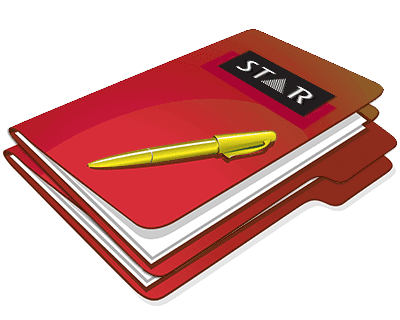Is Free Translation Really Free?

What is available for free?
Before we answer that, let’s start from the beginning. STAR is a professional translation company. We employ real people to translate our customers’ documents and files. These real people work in their native language, in-country, translating documents, websites and software applications for our customers. All of these professional people are paid to provide a high quality service. So why are we talking about free translation?
Well, mainly to let people understand the difference between using a professional company to translate a document instead of free online translators like Google Translate. There are major differences between them. The results are significantly different.
How is free translation done?
The majority of free translation is actually done by computers using what is called machine translation. In simple terms the computer program tries to work out from matching words it has in a dictionary what you are saying. It then takes the translated words it knows and puts them together in a new “translated sentence” which it then presents to you.
The main problem with this approach is that most languages do not have a one-to-one relationship in meaning.
There is the famous saying that in Iceland there are over 50 ways to say ‘snow’, depending on what type it is. However, we just know it as snow. In language terms the sentence structure is different in many languages. Machine translation tries to get the best fit for all. Naturally in some cases it will be wrong.
Other online machine translation services are Systran and Bing Translator.
Note: We provide links to external sites for reference only. We are not responsible for any external content or implications from their use. They are provided as is, in good faith, from our own experiences on the Web. You should always have important translations professionally done, here’s why.
Why you shouldn’t use it
Machine translation delivers a one size fits all solutions. It cannot tell if your document is legal, a health and safety manual, a letter to a friend or a random set of words, so results are unpredictable.
Another key failing of machine translation is that it lacks context for any terminology. Let’s explain.
We want to translate a document about audio equipment, a specification for a Hi-Fi. The term ‘Hi-Fi’ is very specific; we know because of the context (audio equipment) what we are referring to.
Machine translation, however just sees the words ‘Hi’ and ‘Fi’. Hi obviously means hello and will be translated in this context. Fi must be a reference number and we will leave this as is.
If you translate ‘Hi-Fi’ in Italian using machine translation’ you get ‘Ciao-Fi’! Ciao is the Italian word for hi.
You can see examples of this on the Internet by loading your favourite search engine and doing a search for “Ciao-Fi”.
When a Home is not a Home
One of the oldest occurrences of bad machine translation was when people started using this to translate their websites. In French, the machine translation of the word ‘Home’ is ‘Maison’. In this case ‘Maison’ means ‘a home’ or ‘a house’. The correct French translation for home page should have been translated to ‘Accueil’ or top / index page.
While these are simple examples of bad translation from a lack of context, think about the impact on your own documents.
- What terms do you have in your health and safety manual?
- Do your contracts have specific legal terms?
For technical translation, what would machine translation do for “common rail diesel engine”? We translate for the oil and gas industry also. The top part of an oil rig is called a “Christmas tree”. We wonder what machine translation would deliver for this.
Google webmasters make a point of highlighting that bad translation will hurt your Google ranking. On the Google webmaster forum, they discuss machine translation: “Automatic translation is convenient and helps people get a quick gist of the page. However, it’s not a perfect substitute for the art of professional translation.” See Google Webmaster Forum: Translation and SEO ranking.
Why you should use it
Let’s be fair. Machine translation has to be good for something, doesn’t it? Yes, it is!
Machine translation is basically a gisting engine. It will certainly help you get the “gist” or idea of a document in another language, quickly and for free.
You can use it to communicate with friends. Most of the time you just need to know roughly what people are talking about in order to understand them; it’s great for this. You can send messages to people and be reasonably understood, as long as the other person knows there will be mistakes in the translation that’s okay.
Can I use it for business?
You may have a website translated into a number of languages. What happens when someone sends an email in a language you don’t understand? They may be looking for a quote for your product.
Machine translating their email will give you an instant idea whether it’s a quote and roughly what they are asking for. Therefore your inbound communications can be handled very quickly.
The best practice is to have a number of standard replies professionally translated. These can then be emailed to the client so your sales teams can respond quickly to potential new customers. Once the client is closer to buying you can engage your translation company to help you complete the sale. This process means you don’t have to have multilingual support for every language. As you begin to grow your export sales you can then hire more people with the language skills in-house.
Get a Free Quote
We are one of the world’s largest providers of professional translation services. We have over 50 offices across more than 30 countries, employing over 950 specialists; we will deliver your documents into almost any language.
Give us a call on +353 (0)1 836 5614 or simply upload your files for a free translation quotation for a professional human translation of your documents.
Other Useful Resources
Some excellent online resources we recommend include the following.
CIA World Factbook
The World Factbook is prepared by the Central Intelligence Agency for the use of US Government officials; the style, format, coverage and content are designed to meet their specific requirements.
It gives background information on virtually every country in the world from population, flags and languages to local information on economics et cetera. Visit the CIA World Factbook.
EUR-LEX
The EUR-LEX site provides direct, free access to European Union law. It is the largest document repository on European Union Law. It has extensive search facilities and is available in all the official languages of the EU.
Microsoft Terminology Dictionaries and Language Support
Microsoft makes a large number of its terminology dictionaries available to its customers and translators. If you need to check a term in any language for a Microsoft product, then simply visit their online language site, Microsoft Terminology Dictionaries.
See also:Microsoft NLS Language Terminology
